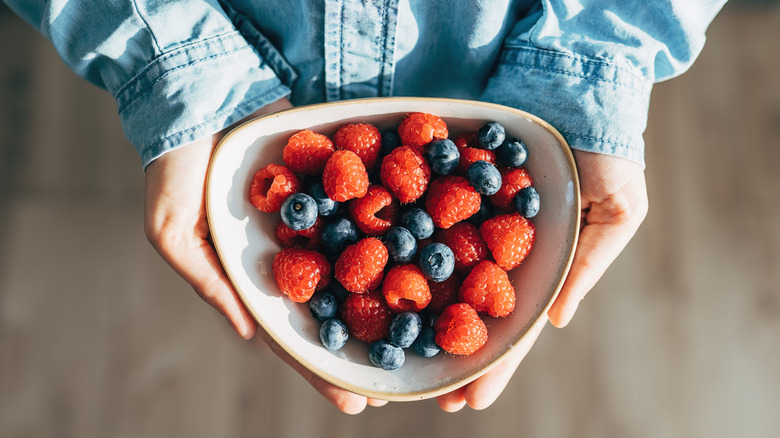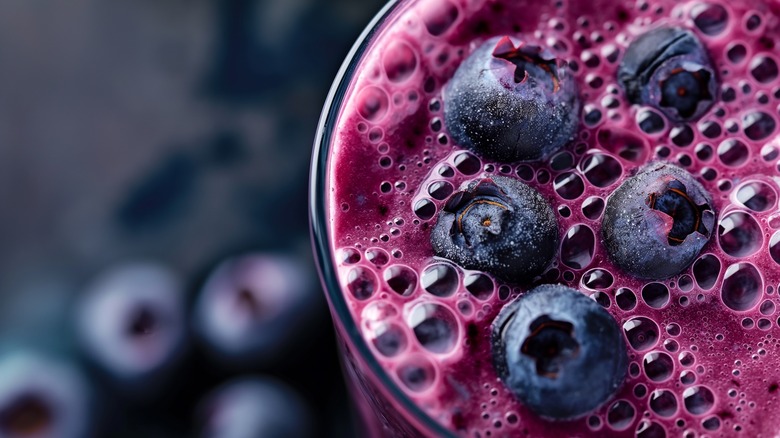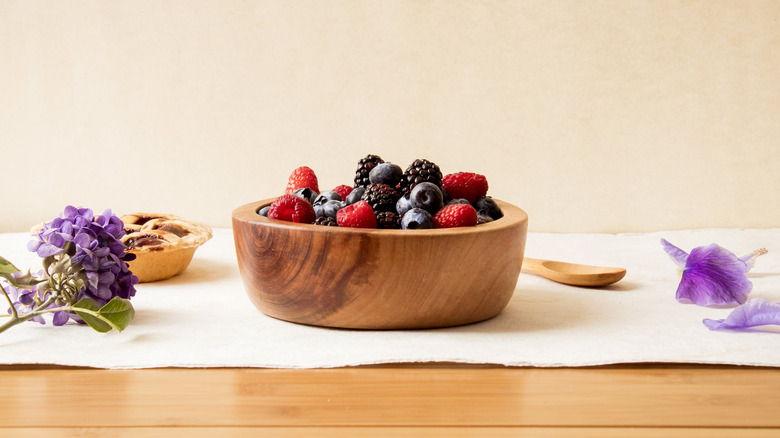
Kseniya Ovchinnikova/Getty Images
If you’ve ever had a urinary tract infection, you know that they’re not just uncomfortable — they can also be downright painful, too. They’re also really common. According to the Urology Care Foundation, roughly 10 in 25 women will experience a UTI at some point, while the same can be said for three in 25 men. Urinary tract infections are also the second most common bodily infection, affecting millions every year. While a UTI in itself isn’t that serious, because it can cause kidney infections if left untreated, staying on top of your urinary tract health is paramount.
Although when talking about UTIs and natural ways to help prevent them, cranberries are usually the first thing to come to mind, they’re actually not the only berry that can aid in the fight against developing a urinary tract infection. It turns out that blueberries, raspberries, and blackberries can also be helpful if consumed regularly. Which is fantastic news for those who tend to get frequent UTIs but don’t like cranberries.
Whether you’re prone to UTIs already or you just want to stay on top of your urinary tract health, it’s time to incorporate more berries into your diet. You can do that by eating them fresh in a bowl, tossing them in a smoothie or salad, or infusing your water with them. Just as long as your diet is rich in berries, then you’re doing your part to help keep UTIs at bay.
Blueberries have anti-inflammatory properties

Mesve79/Shutterstock
When it comes to staving off urinary tract infections, blueberries bring quite a bit of muscle to the equation. For starters, blueberries, like all berries, are packed with antioxidants and these little gems love to get into the body and scare off free radicals. In doing so, oxidation is reduced, and that’s a good thing for overall health, not just for the urinary tract. According to a 2016 study published in the Journal of Research in Pharmacy Practice, oxidative stress is a major component in kidney infection. However, antioxidants, like the ones found in blueberries, work to keep the urinary tract healthy and, in turn, can help with kidney diseases like pyelonephritis. The same study found that antioxidants, when used with antibiotics, can help prevent lasting damage to the kidney after a pyelonephritis diagnosis.
Blueberries, like cranberries, are also rich in anthocyanins, according to a 2020 study published in Antioxidants (Basel). This is necessary for antibacterial activity that can help fight bacterial infections in the urinary tract. In addition to their antibacterial properties, anthocyanins are also anti-inflammatory, something that’s beneficial for infections and disease.
Raspberries and blackberries are rich in antioxidants

Daniel Cortez/Getty Images
Although we’ve already covered how important antioxidants are to urinary tract infections, raspberries and blackberries also bring vitamin C and quercetin to the table. If you’ve never heard of quercetin, then it’s definitely time to get to know it. According to a 2022 study published in the European Journal of Pharmacology, quercetin is a flavonoid found naturally in some fruits and vegetables.
While all flavonoids are considered important for their antioxidants and anti-inflammatory properties, quercetin is so potent that it has a strong potential for “anticancer, anti-Alzheimer, antidiabetic, anti-inflammatory, and anti-obesity activities.” Naturally, not all these health benefits may be related to UTI prevention, but it certainly makes a case for why quercetin should be part of every healthy diet. Quercetin, like vitamin C, boosts immunity, and, as we all know, a healthy immune system is necessary in the fight against infections — and that absolutely includes UTIs.
But what’s important to take into consideration as you bring more berries into your diet is that the consumption of these delicious fruits isn’t going to work miracles. For example, if you already have a UTI, eating all the berries in the world isn’t going to chase away the infection; only antibiotics can do that. Berries and all their healthy properties are meant to prevent UTIs, not treat them. So if you’re feeling any level of discomfort or pain when you urinate, don’t delay and see your doctor as soon as possible.
Credit: healthdigest.com










